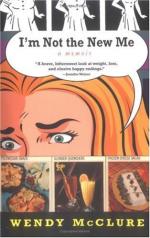“The Locos here are in considerable trouble about Van Buren’s letter on Texas, and the Virginia electors. They are growing sick of the tariff question, and consequently are much confounded at Van Buren’s cutting them off from the new Texas question. Nearly half the leaders swear they won’t stand it. Of those are Ford, T. Campbell, Ewing, Calhoun, and others. They don’t exactly say they won’t go for Van Buren, but they say he will not be the candidate, and that they are for Texas anyhow.
“As ever yours,
“A. LINCOLN.”
[Illustration: ABRAHAM LINCOLN IN 1860.—HITHERTO UNPUBLISHED.
From an ambrotype taken in Springfield, Illinois, in 1860, and given by Lincoln to J. Henry Brown, a miniature artist who had gone to Springfield to paint a portrait of the President for Judge Read of Pennsylvania. The ambrotype is now in a collection in Boston. A companion picture, made at the same time, is owned by Mr. William H. Lambert of Philadelphia, Pennsylvania, and was reproduced as the frontispiece to MCCLURE’S MAGAZINE for March, 1896 (see note to this frontispiece).]
[Illustration: GENERAL JOHN J. HARDIN.
After a portrait owned by Mrs. Julia Duncan Kirby, Jacksonville, Illinois. John J. Hardin was born at Frankfort, Kentucky, January 6, 1810; was educated at Transylvania University; removed to Jacksonville, Illinois, in 1830, and there began practising law. He at once became active in politics, and in 1834 was a candidate for Prosecuting Attorney, an officer at that time chosen by the legislature. He was defeated by Stephen A. Douglas, then a recent arrival from Vermont. In 1836 he was elected to the lower branch of the General Assembly, and served three terms. In the session of 1836-37, he was one of the few members who opposed the internal improvements scheme. He was elected to Congress from the Sangamon district in 1843, and served until 1845. For some time he was a general in the State militia. In the Mexican War, he was colonel of the First Illinois Regiment, and was killed at the battle of Buena Vista, February 23, 1847. General Hardin was a man of brilliant parts. He was an able lawyer, and at the time of his death had risen to the leadership of the Whig party in his State. It was through his intercession, aided by Dr. R.W. English, that the unpleasantness between Lincoln and Shields in 1842 was amicably settled and a duel prevented.—J. McCan Davis.]
[Illustration: COLONEL EDWARD D. BAKER.




